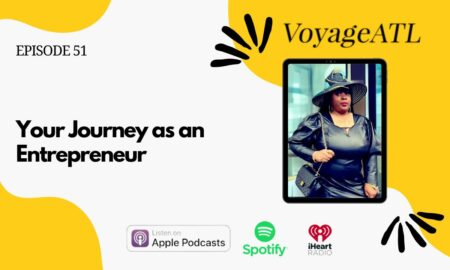

Today we’d like to introduce you to Brandon Garrett.
Brandon, let’s start with your story. We’d love to hear how you got started and how the journey has been so far.
My life is anything but linear. Its trajectory has the appearance of being dictated by the indecisive whims of one trying to find their way in life. It resembles the meandering wanderings of a mountain road carved circuitously with the mountain’s constantly changing topography. I am a lifelong lover of writing who found his way to an engineering school (Georgia Tech) before venturing off to seminary and upon graduating, took a job first with an engineering consulting firm then with a general contracting firm. The road winds still. I then took a pastoral staff position with a church in my hometown during which I finished post-graduate seminary studies before returning to the world of general contracting in which I now work while leading a network of neighborhood house churches called Village Network.
But, in a profound way, the journey to launch Village Network started long before my story began. My family has deep roots in Stone Mountain Village. My grandparents were the sort of fairytale, picturesque high school sweethearts–the kind that haunts our Tinder-informed conceptions of romance with a prophetic glimpse of something more enduring, more desirable, more beautiful. My grandfather was the popular, football-playing jock and my grandmother was the quick-witted, bright cheerleader at Stone Mountain High School. They got married and eventually settled back down in the Village. (I wear my grandfather’s wedding band so that my wedding vow is grounded in the fidelity of the vow he made to my grandmother. I think we all long to know there’s a love that’s beyond us–that precedes us and will remain after we’re gone). They had five children, endured the agony of burying one far too young, and raised the remaining four kids in a 1920s built farmhouse at the end of Main Street. My grandmother was a math teacher at Stone Mountain High School when it was still in the Village. Fast forwarding, my parents met in the Village when my dad worked at one of the local churches in town. Their first home was the house next to the oldest (remaining) building in the city, the first mayor’s house, that’s now owned by some of our best friends in the world (and next-door neighbors).
So there has always been an innate, eventually inescapable, draw to this place, to participate in the story of my family and this city that has been home to the generations before me. But it’s no secret that the prevailing story of Stone Mountain is marred. It’s a place where the Klan marching down Main Street is symbolically seared into the cultural consciousness, like a mental thorn that isn’t easily removable. There are constant reminders (and monuments) of the oppressive horrors of the past, and at times the present seems unable to escape into joys of true freedom ringing in a new narrative. For the last few decades (for reasons that are far too complex and complicated for me to comment on), the Village has sort of been forgotten and left to idle in a purgatory between the sins of its past and hope for a new future.
But it’s a place that is pregnant with possibility. This is one of the things that led me back here–the latent potentiality that permeates the soil of this place. It’s a place primed for a new narrative–one that first acknowledges the past for what it is, that is unafraid of drawing near to the past to understand the good and the bad so that a better narrative can be written out of it. And because so much of the fractures in the fabric of the culture here are relational and communal, the city aches to be healed along those same fault lines. So my great hope for Village Network is that we can be curators of the redemptive community by living with and among our neighbors here in a way marked by love–a kind of love that is patient and kind, that buries itself for the life of others, that is willing to do the hard labor of tilling and sowing so that others, even in another generation, can bear the fruit of new creation.
We’re always bombarded by how great it is to pursue your passion, etc – but we’ve spoken with enough people to know that it’s not always easy. Overall, would you say things have been easy for you?
Nothing worth doing is ever easy. I think the most challenging thing we’ve encountered is our collective, societal bent towards individualism and consumerism. We each want to be the heroes of the stories we write, so when we encounter the first and fundamental demand of the authentic community and relational intimacy–that we put others before ourselves–it doesn’t sit well in the stomachs we indulged with the empty mantras of individualism that ultimately see others not as an asset or a help but a hindrance to our making way and a name in the world. The ironic thing is that we all want community. Even in our individuality, we want to be with others because the supreme desire in the human heart is to be known and to be loved, and this desire can never find fulfillment on the island of individualism. It can only be satisfied in the context of community, of others who are committed to truly knowing you and loving you still.
The other but related challenge we encounter in curating redemptive community is consumerism. We have been raised and live in a world where we have nearly unabated access to consume. We can have anything we want on Amazon in two days (or two hours in some cases). We can watch a nearly endless library of shows on multiple streaming platforms. We can have whatever food we want without leaving the city (or even leaving our home). We can date and mingle and hook up all with a few swipes on our phones. Our brains have been rewired to see the world and everything in it as objects for our pleasure or disposal. So when we invite people into redemptive community, not as consumers but as contributors, not as critics but as participants, it can be dissonant to our ears that are so tuned to the siren song of “Come, take and eat.” But we want to help people reckon with the reality that our objectifying the world is, in turn, hollowing out our souls. While we think we are gorging ourselves on all that glitters, we are actually starving ourselves because we all have a latent hunger to belong, not as a consumer cog in a macro-economic machine, but as a contributor around a table with a few neighbors whom we know and who know us.
And nothing we do is flashy. Where we are isn’t the coolest, most trendy neighborhood. We don’t have an amazing brand or product or service in the traditional sense that is magnetized and draws attention and applause. We aren’t the envy of social media. So much of what we do is seemingly mundane and nearly all of it is hidden. It’s gathering neighbors together around a meal. It’s walking around the city with the intention and expectation of connecting with someone new. It’s planting a garden just to give its produce away to neighbors. It’s making the local coffee shop or pub a sort of modern-day Cheers where you know everyone’s name and everyone’s story. Honestly, in a world where visibility, brand identity, impact and reach are the championed the highest organizational goals, it’s easy to wonder if everything we are doing in the quiet, hidden places are doing anything. But we see our work as a seed. Unless the seed falls into the ground, invisible, and dies, it won’t bear any real fruit–even if we achieve all the championed metrics.
Please tell us about Village Network.
We are a network of neighborhood churches, small congregations of people who are committed to living and loving Jesus together. We aim to be a redemptive community, and essential to that aim is our identity as neighbors, storytellers, table-setters, and cartographers.
We believe the church is more than an event. Jesus calls the church to be an embodiment of His life, to be a visual, physical representation of His body in the world. We are the church as neighbors—people we live next to, go get coffee with, stop and talk with on the sidewalk, meet up at the park with—so that as we love God and one another, our life together as neighbors might offer a glimpse into the heart and life of God for those in our city.
We love stories. They have the powerful ability to tap into our deepest longings and desires, our secret hurts and pains. We believe the story God tells in the Scriptures is the true story of the whole world—that it is the big Story that makes sense of all of our little stories. We tell the story of the Scriptures with our lips and our lives, our poetry and our praise, our songwriting and our homemaking.
We love to eat. We believe the table is a profoundly human place. No matter who we are or where we come from, we all come to the table needy—hungry needing food and drink. Yet it is at the table that we also are offered to enjoy the undeserved provision of God. Jesus tells us that we are to enjoy the table in remembrance of the provision He has made for our life in laying down His own. We set that table for one another and our neighbors in the city.
We love our city. We believe Jesus has called us here to map the mountains and the valleys, the places of rest and of hazard, the streams of refreshment and the dry wells, the places of habitation and the barren places—so that we might chart a course and signal the way in our city toward redemption.
Has luck played a meaningful role in your life and business?
I wouldn’t call it luck, but a key moment in the story of Village Network was a stumbling across Gilly Brew Bar on Google. I was doing some research on the city before we moved here, and I came across this really cool coffee shop that was planning to open in the Village. Through some unashamed internet stalking, I got connected with Daniel Brown, who owns it, and our first conversation was a sort of answered prayer. Daniel and his wife had been praying for God to stir people with a similar vision and passion to move to the Village, and we had been praying the Lord would connect us with people who were already doing some amazing things in the Village. Now, they are our literal neighbors.
Contact Info:
- Website: villagenetwork.church
- Phone: 4044320000
- Email: brandon@villagenetwork.church
- Instagram: https://www.instagram.com/village.network/





Suggest a story: VoyageATL is built on recommendations from the community; it’s how we uncover hidden gems, so if you or someone you know deserves recognition please let us know here.
Meet East Atlanta Series Sponsor:
T’Mil Curtis aka the Navigator: I’m a marketing and brand strategist, co-owner of a record label, content curator, speaker and social media influencer that’s been helping churches, small businesses and brands up their social media game during this pandemic.

- Website: www.itsladytmil.agency
- Instagram: www.instagram.com/Itsladytmil
- Twitter: www.twitter.com/Itsladytmil
- Facebook: www.facebook.com/Itsladytmil
- Other: www.weherenowmusicgroup.com



















